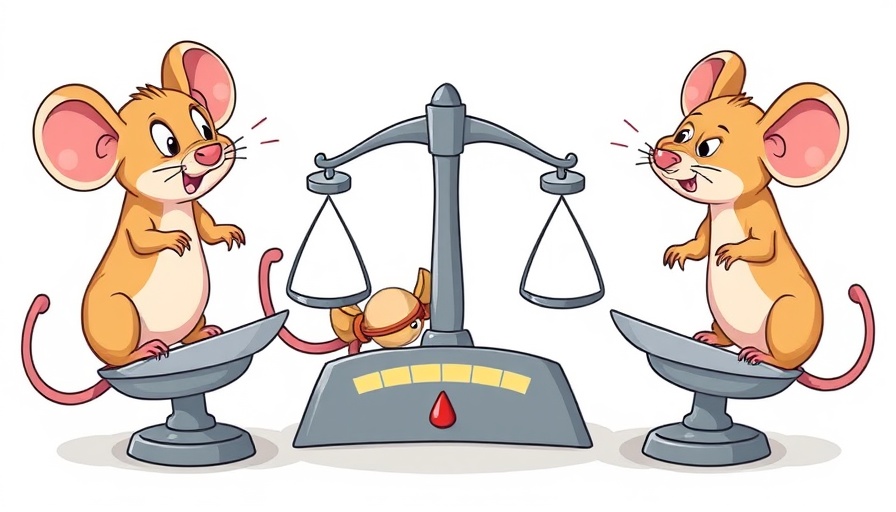
The Dual Nature of Stress: Acute vs. Chronic
Understanding the impact of stress on mental health has never been more critical, especially as we navigate our increasingly demanding lives. Recent research from Zhejiang University sheds light on how acute stress can trigger beneficial neural repair mechanisms in the brain, contrasting sharply with the detrimental effects of chronic stress. This dual impact on the brain's emotional regulation center, the lateral habenula, underlines a fundamental aspect of mental health: stress isn't just a singular concept—it behaves differently based on duration and intensity.
Why is Understanding Autophagy Important?
Central to this study is autophagy, a cellular process responsible for degrading and recycling components within cells. Autophagy plays a pivotal role in maintaining neuronal health by regulating protein turnover, and its dysfunction has been linked to several neurodegenerative conditions. By understanding how autophagy reacts to different types of stress, researchers can identify potential targets for new therapeutic strategies in treating depression and anxiety disorders.
Evidence from the Research
The researchers conducted extensive in vivo and in vitro experiments, utilizing various stress models such as social defeat and restraint. They discovered that while acute stress boosts autophagic activity, chronic stress significantly suppresses it. This suppression could lead to neuronal dysfunction, further deteriorating mental health in sufferers of depression. Interestingly, several antidepressants, including ketamine and paroxetine, were found to reverse this suppression, reinforcing the idea that restoring autophagic function could be key in treating stress-related disorders.
Scientific Insights on Stress and Depression
Major depressive disorder affects approximately 10.6% of the global population, illustrating its importance as a public health concern. Stress is a known catalyst for depression, complicating the landscape of treatment options available. Understanding how acute and chronic stress modulate cellular responses empowers researchers and medical professionals to craft better therapeutic strategies that can effectively address the underlying mechanisms of depression.
Relevance to Community Health and Wellness
In the context of community health and wellness, the implications of this research extend far beyond individual well-being. By promoting awareness of how lifestyle factors such as stress management can impact mental health, communities can pave the way for initiatives focused on optimal health and wellness. Health and wellness centers could offer programs aimed at teaching stress reduction techniques, fostering environments where individuals can learn how to cope with stress effectively.
Future Trends in Mental Health Treatment
The implications of this research set the stage for future trends in mental health treatment, particularly in integrating psychological therapies with pharmacological approaches. As awareness grows about the role of nutrition and lifestyle in mental health—factors considered in naturopathic medicine and wellness—there may be a shift towards holistic approaches that combine traditional therapies with emerging insights from neuroscience. Communities could benefit from health and wellness events that share knowledge about the connections between stress, substance use, and techniques for improving one's mental health.
How This Research Affects You
As someone navigating the complexities of daily life, understanding the different types of stress and their respective impacts on your mental health can be empowering. Incorporating practices that promote acute stress responses, such as exercise and mindfulness techniques, can enhance your resilience against long-term stress. Engaging with local health and wellness resources can further support your journey towards maintaining optimal mental health.
Conclusion: Take Charge of Your Mental Health
As we reflect on the findings from this groundbreaking study, it becomes crucial to prioritize our mental well-being in today's hectic world. Building a community that recognizes the importance of mental health—that offers support, education, and resources—can be a game changer. Don't wait for stress to take control of your life; seek out resources to learn how to manage it effectively. Engage with local health and wellness centers and take proactive steps towards better mental health.
 Add Row
Add Row  Add
Add 




 Add Row
Add Row  Add
Add 


Write A Comment